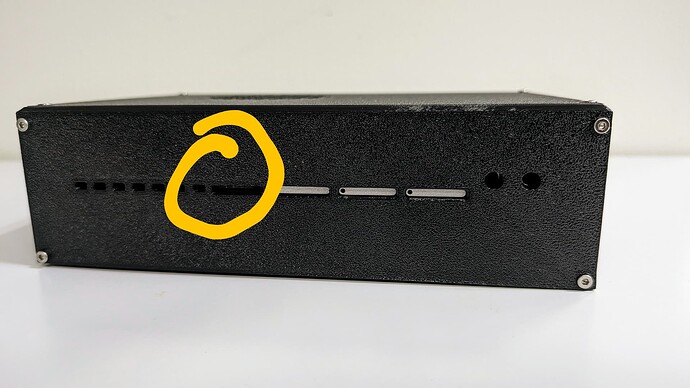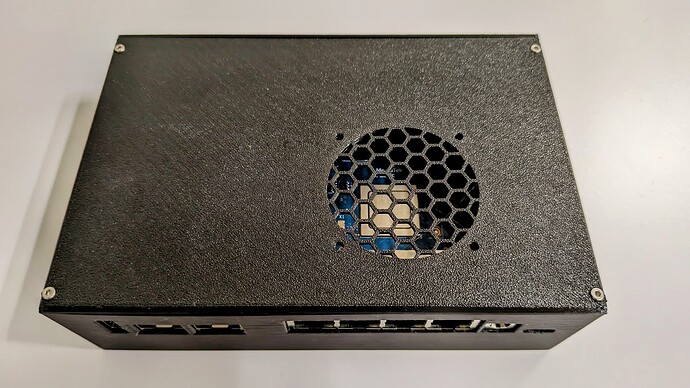DroZDi
February 27, 2024, 11:07pm
205
on my BPI-R4:
pkg_hash_check_unresolved: cannot find dependency kernel (= 6.1.79-1-4a3c1cd3a4e65473dcdef01a32cbb597) for kmod-cfg80211
pkg_hash_fetch_best_installation_candidate: Packages for kmod-cfg80211 found, but incompatible with the architectures configured
pkg_hash_check_unresolved: cannot find dependency kernel (= 6.1.79-1-4a3c1cd3a4e65473dcdef01a32cbb597) for kmod-crypto-hash
pkg_hash_fetch_best_installation_candidate: Packages for kmod-crypto-hash found, but incompatible with the architectures configured
pkg_hash_check_unresolved: cannot find dependency kernel (= 6.1.79-1-4a3c1cd3a4e65473dcdef01a32cbb597) for kmod-crypto-cmac
pkg_hash_fetch_best_installation_candidate: Packages for kmod-crypto-cmac found, but incompatible with the architectures configured
pkg_hash_check_unresolved: cannot find dependency kernel (= 6.1.79-1-4a3c1cd3a4e65473dcdef01a32cbb597) for kmod-crypto-null
pkg_hash_fetch_best_installation_candidate: Packages for kmod-crypto-null found, but incompatible with the architectures configured
pkg_hash_check_unresolved: cannot find dependency kernel (= 6.1.79-1-4a3c1cd3a4e65473dcdef01a32cbb597) for kmod-crypto-aead
pkg_hash_fetch_best_installation_candidate: Packages for kmod-crypto-aead found, but incompatible with the architectures configured
pkg_hash_check_unresolved: cannot find dependency kernel (= 6.1.79-1-4a3c1cd3a4e65473dcdef01a32cbb597) for kmod-crypto-manager
daniel
February 28, 2024, 12:47am
206
As this is a snapshot build you have to update to the latest snapshot first to be able to install kernel modules.
DroZDi
February 28, 2024, 3:20pm
207
I have made system upgrade to OpenWrt SNAPSHOT, r25339-35a5e62da7 but my board is not discovering BE200 device...
So we are both at the same step - my own build with included packages
iwlwifi-firmware-be200
kmod-iwlwifi
also does not recognize be200 card. Maybe @dingo will share what needs to be done more (or it was just install packages + reboot and that's it?)
You need to show some logs what is being detected in the system.
DroZDi
February 28, 2024, 5:29pm
210
OS: OpenWrt SNAPSHOT, r25339-35a5e62da7
root@BPI-R4:~# lsusb
for another device Mt7922 I see:
root@BPI-R4:~# dmesg |grep -i firm
DroZDi
February 28, 2024, 5:36pm
211
not sure about those steps
cat /sys/kernel/debug/usb/devices:
T: Bus=01 Lev=02 Prnt=02 Port=01 Cnt=01 Dev#= 3 Spd=12 MxCh= 0
echo "8087 0036" > /sys/bus/usb-serial/drivers/generic/new_id
[ 306.781935] usbserial_generic 1-1.2:1.0: The "generic" usb-serial driver is only for testing and one-off prototypes.linux-usb@vger.kernel.org to add your device to a proper driver.linux-usb@vger.kernel.org to add your device to a proper driver.
T: Bus=01 Lev=02 Prnt=02 Port=01 Cnt=01 Dev#= 3 Spd=12 MxCh= 0
crw-rw---- 1 root dialout 188, 8 Feb 28 10:30 /dev/ttyUSB8 >>> new device created
daniel
February 28, 2024, 6:16pm
212
That's the Bluetooth part of the BE200 card. The WiFi part is connected via PCIe, not via USB.
DroZDi
February 28, 2024, 10:18pm
213
I see:
root@BPI-R4:~# lspci
Nothing more, dmesg as above....
DroZDi
February 28, 2024, 10:19pm
214
Maybe bluetooth part of my MT7922 802.11ax PCI Express Wireless Network Adapter?
update Im wrong as I remove the BE200 card and there was no entry 8087:0036 so I m rather sure it should ba a part of BE200
DroZDi
March 1, 2024, 3:20pm
215
any hint or advise how we can go forward?
bmork
March 1, 2024, 4:06pm
216
Do you have some other device with a mini-PCIe slot where you can test the BE200 and adapter combo? The adapter is the prime suspect here.
DroZDi
March 1, 2024, 9:07pm
217
Yes mt7922 and IT is working fine.
A friend helped me to 3D print the case, there are a few problems:
RJ45 ports, and SFP cages are physically not exactly aligned at the same horizontal line, but the case design assumes they are aligned so I have to do some human cutting for me to force it in.
USB-C port opening not close enough to the DC Jack, need to manually make it bigger to fit in USB-C. One more note here is, USB-C is not coming out as much as other ports, don't make the case very thick or your USB-C cable can't push all the way into the port.
Back side: SD card slot should have wider opening, I have to use pen or screw driver to push card in/out. And since SIM slots do not use spring mechanism to eject it, basically I am not able to pull the dummy out (well I don't plan to use it now)
BTW, just found that the BPI-R4 is on sale in US Amazon as a small kit, with debugging serial + heatsink @$130
1 Like
ahuman
March 4, 2024, 11:46pm
220
How fussy is this thing about SFP modules, especially copper?
daniel
March 4, 2024, 11:56pm
221
Not different from any other embedded Linux device which supports multiple speed SFP modules. Generally, for copper SFP modules that means that they work best if the built-in PHY can be detected by Linux via MDIO-over-I2C (either Marvell C22 or RollBall C45 protocol).
At this (quite early) point of adding support for the MT7988 SoC to Linux there are still some problems with PCS stability in 1G and 2.5G modes, sometimes multiple manual link up, link down, link up sequences are required before it actually works. I'm working with MediaTek to resolve this in a way which is worth being called a good solution (and not just a dirty hack).
7 Likes
ahuman
March 5, 2024, 12:03am
222
Thank you for the detailed answer! That's very good to know about the sketchy 1G and 2.5G stability at present.
daniel
March 5, 2024, 1:19am
223
If you want to be on the safe side, get 10G copper SFP+ module with Marvell 10G PHY inside. Those work great and very reliable (in USXGMII mode).
dingo
March 5, 2024, 1:41am
224
if you can be a bit more concise i have a freind who can fix the stl to work properly.


